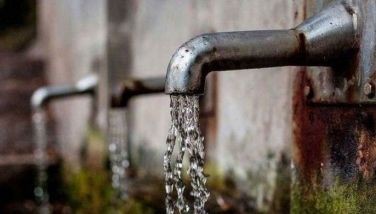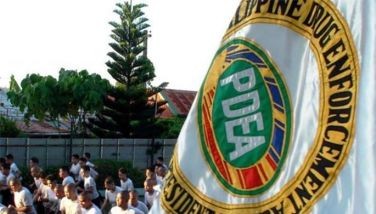Water contaminated with E. Coli: Sitio’s well dirty
CEBU, Philippines – The 40-year-old deep well, the primary water source of an upland Toledo City community where a typhoid-like disease struck, is contaminated and the water is not safe for drinking.
This after water testing conducted by Regional Epidemiology and Surveillance Unit of Department of Health-7 found fecal coliform and E. coli in the samples obtained from Sitio Bayabas, Barangay Subayon.
RESU-7 chief epidemiologist Rennan Cimafranca said the cases are most likely typhoid, and not dengue as earlier considered, as the fever has already been weeks.
“We cannot yet conclude that it is typhoid. Though, we cannot also associate it with dengue because fever has been felt on and off for weeks already. There was even one who started losing her hair, a manifestation of typhoid,” Cimafranca said.
The poultry that locals alleged caused the sickness, he added, was unlikely to have caused the illness but the flies from the poultry may have also contributed to spreading the disease.
Recommendations from DOH included sealing the deep well with a concrete slab so that further contamination can be prevented. A jetmatic pump, Cimafranca added, was likewise recommended.
The upland community also did not have a sanitary toilet, Cimafranca said.
For three weeks now, a total of 26 residents of the sitio, which has roughly 100 residents comprising 20 families, experienced on-and-off fever.
Of the total affected residents, 14 were admitted to the Toledo City Hospital while one was eventually referred to the Vicente Sotto Memorial Medical Center.
“The male adult referred to Sotto has a bloated stomach. It is indicative of a serious condition. Plus his stool has blood streak and he complains of stomach pain. We continue to monitor his condition,” Cimafranca said.
Apart from the well in Sitio Bayabas, a nearby deep well also tested positive for the same contaminants.
RESU went to the area Sunday to conduct an investigation together with Integrated Provincial Health Office personnel and distribute aquatabs to treat the water before being used by households.
“We cannot prevent the families from using the well because they do not have an alternative water source apart from the ration from the barangay. They should use aquatabs and boil the water just to be safe,” Cimafranca said.
IPHO concurred with the findings.
“Our team is back this morning (yesterday) and our sanitary inspectors, (based from all water specimens) from three sources (ruled that) they are really positive for coli organisms,” said IPHO officer Cynthia Genosolango.
Genosolango said the water sources where they got their samples, were from the two are open wells and from a spring in sitios Pinya and Bayabas in Subayon. She said all the patients are from these areas.
Genosolango also said there was one death in the area last month, and the victims showed the same symptoms as those who are now sick. The patient, who was rushed to VSMMC was declared dead on arrival, she said.
Provincial Board member Grecilda Sanchez, who was at the site last Friday, said since water contamination is almost a common problem in far-flung areas, local government units must also check possible causes of this problem.
Last month in Pinamungajan town, just next to Toledo, two people died while at least 30 were downed by typhoid fever reportedly caused by coliform bacteria from their water source, which is a spring. —/BRP (FREEMAN)
- Latest























